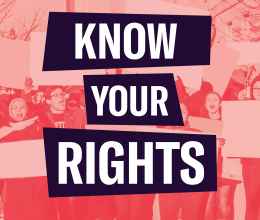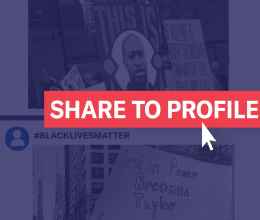In case you missed it, the Chicago Tribune profiled a real life illustration of the harms of the Illinois Eavesdropping Act. As you know, the ACLU of Illinois filed suit to challenge the Act, which makes it illegal to record police performing their public duties. On September 13th, ACLU Board member and General Counsel Dick O’Brien will argue the case before the 7th U.S. Circuit Court of Appeals.
Tiawanda Moore was acquitted from charges violating the Illinois Eavesdropping Act, which prohibits citizens from recording police conversations. Moore had originally placed a domestic disturbance call, and claims she was sexually harassed by an officer who responded to the call. When she filed a sexual harassment complaint against said officer, the police investigators tried to talk her out of filing the complaint, whereupon she began to record the conversation on her BlackBerry.
The ACLU filed a federal lawsuit in Chicago last year challenging the law, saying it was unconstitutional to prevent people from openly recording police officers working in public. A federal judge dismissed the suit, but the 7th U.S. Circuit Court of Appeals is scheduled to hear oral arguments next month in the ACLU's appeal of the decision.
"There's nothing private about a police officer doing his duties on the public way," said Harvey Grossman, legal director for the ACLU of Illinois. "The way that they police and conduct themselves is a matter of public importance."




